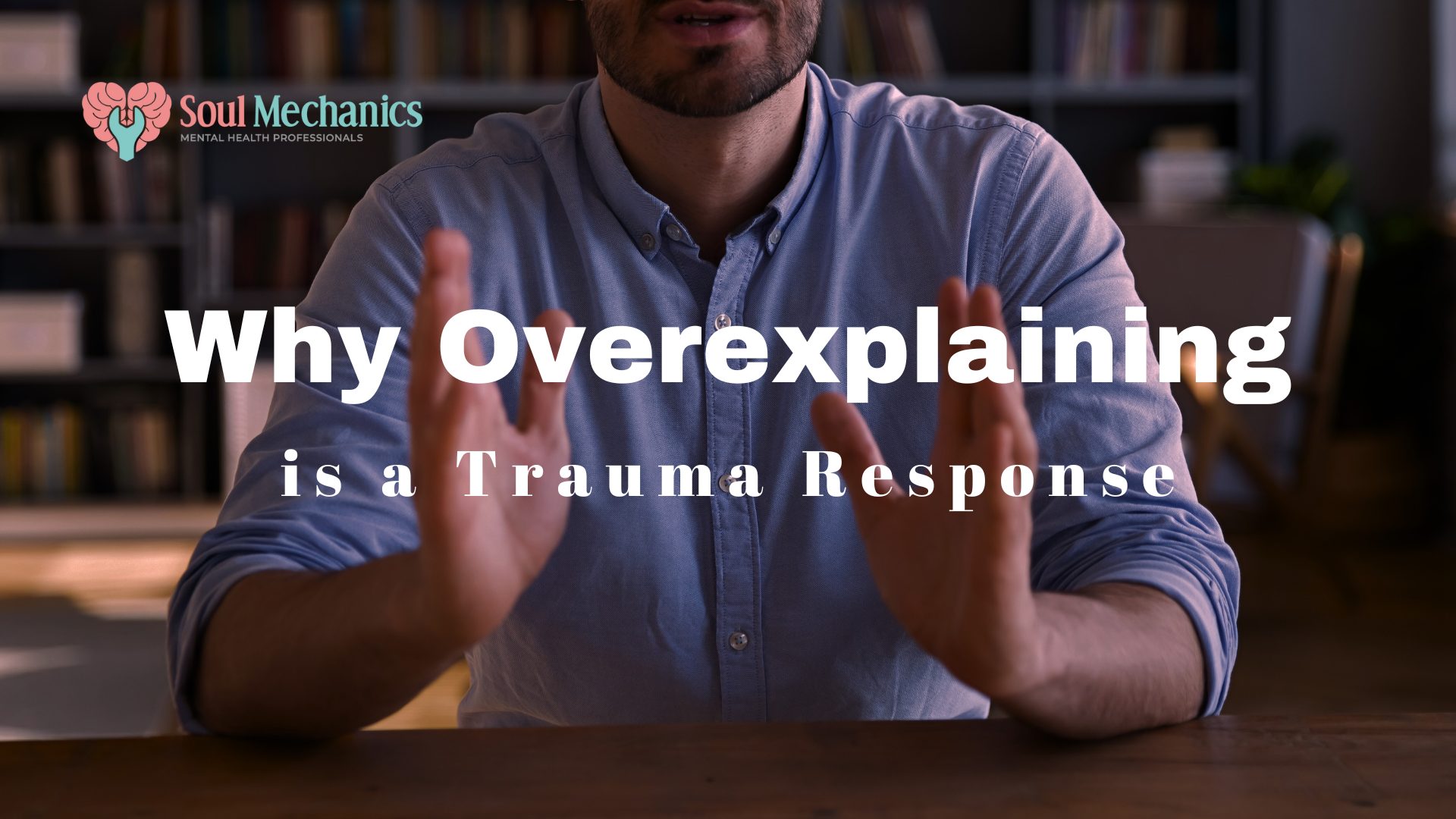Over-Explaining – A Trauma Response?
Over-Explaining – A Trauma Response?

Written by: Jenefa Anthony, Licensed Counselor (KB 11780)
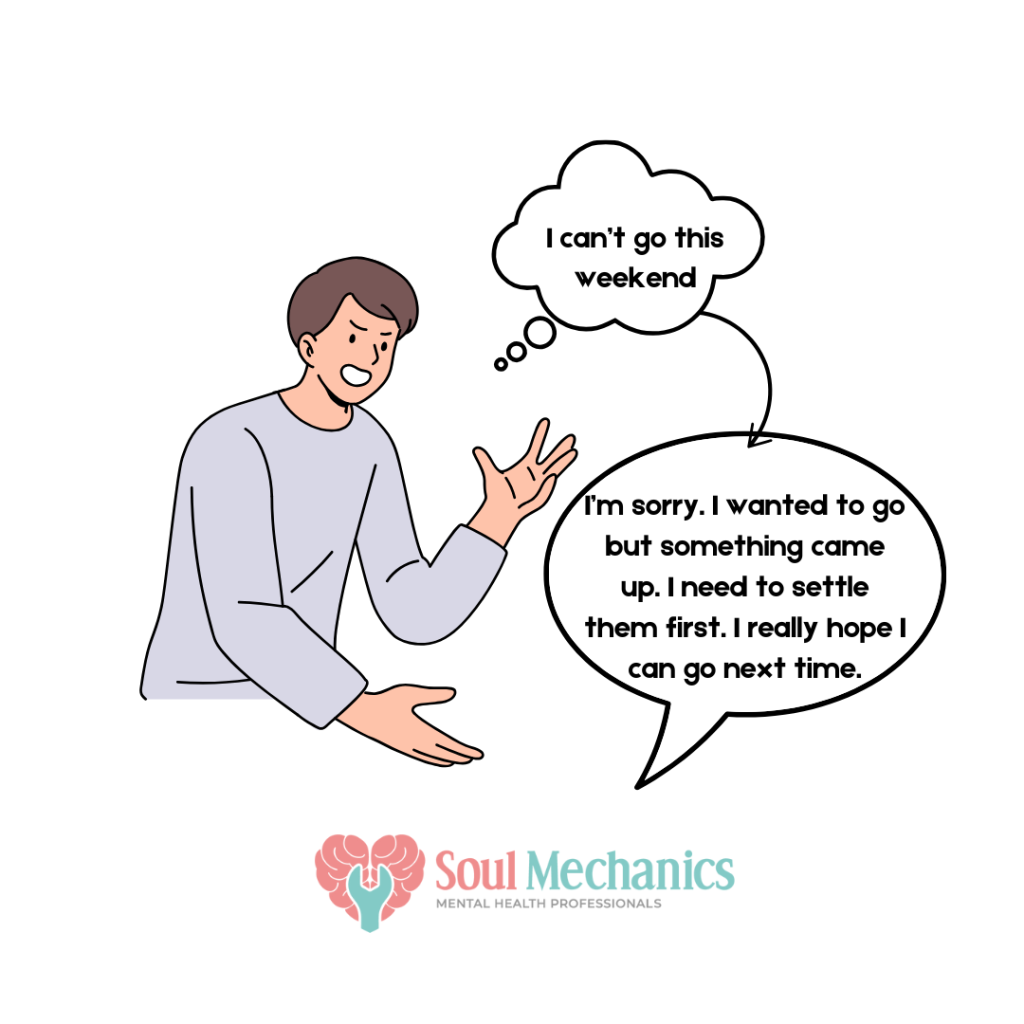
Have we ever been in situations where intend to say something succinct and to the point, but instead, we wind up babbling? We refer to this as over-explanation. Overexplanation, or giving far more details about a situation, decision, or thought than is appropriate, is frequently the result of an underlying psychological tendency. Although it may seem harmless, overexplanation may be a symptom of underlying trauma.
What exactly does that mean, though, and why do some people think we have to justify everything we say and do?
What’s Over-explanation?
Giving too much information to make your actions, thoughts, or intentions more clear is the fundamental component of overexplaining. For instance, you could say, "I'm so sorry, I can't make it tonight because I have this thing at work that's been piling up, and I just didn't realize how much I had to do," rather than, "I can't make it tonight." You would feel terrible about it, but you would hope that we could reschedule soon.
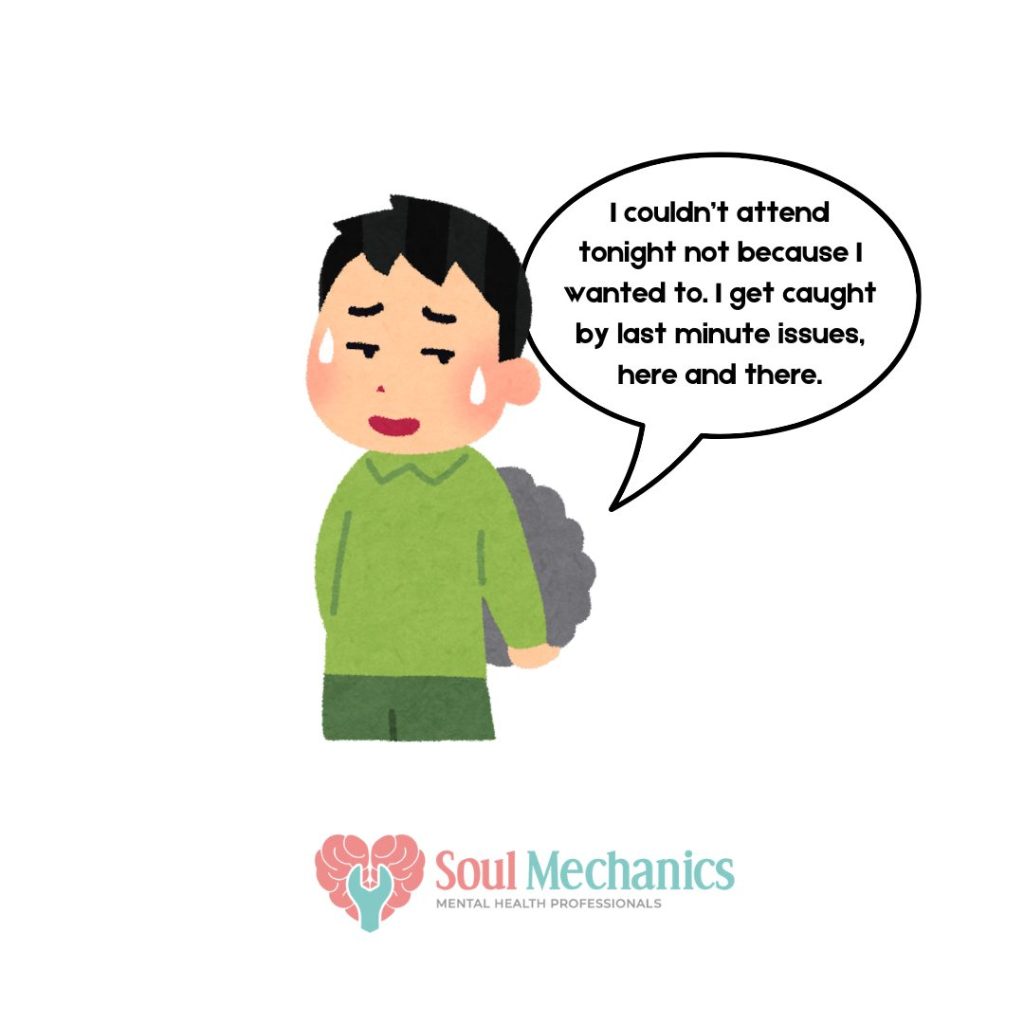
Overexplaining frequently goes beyond appropriate communication, even though there is nothing intrinsically wrong with explaining oneself. Convincing others that your decisions or emotions are legitimate is more important than merely sharing. Many people feel this compulsion because they are afraid of being misinterpreted, judged, or rejected.
Why Do We Explain Too Much?
We must examine the causes of over-explanation to fully comprehend it. This behaviour is frequently linked to conflict anxiety or feelings of insecurity. Some people have developed this habit as a result of trauma or as a result of their early life.
The Need for Safety and Trauma
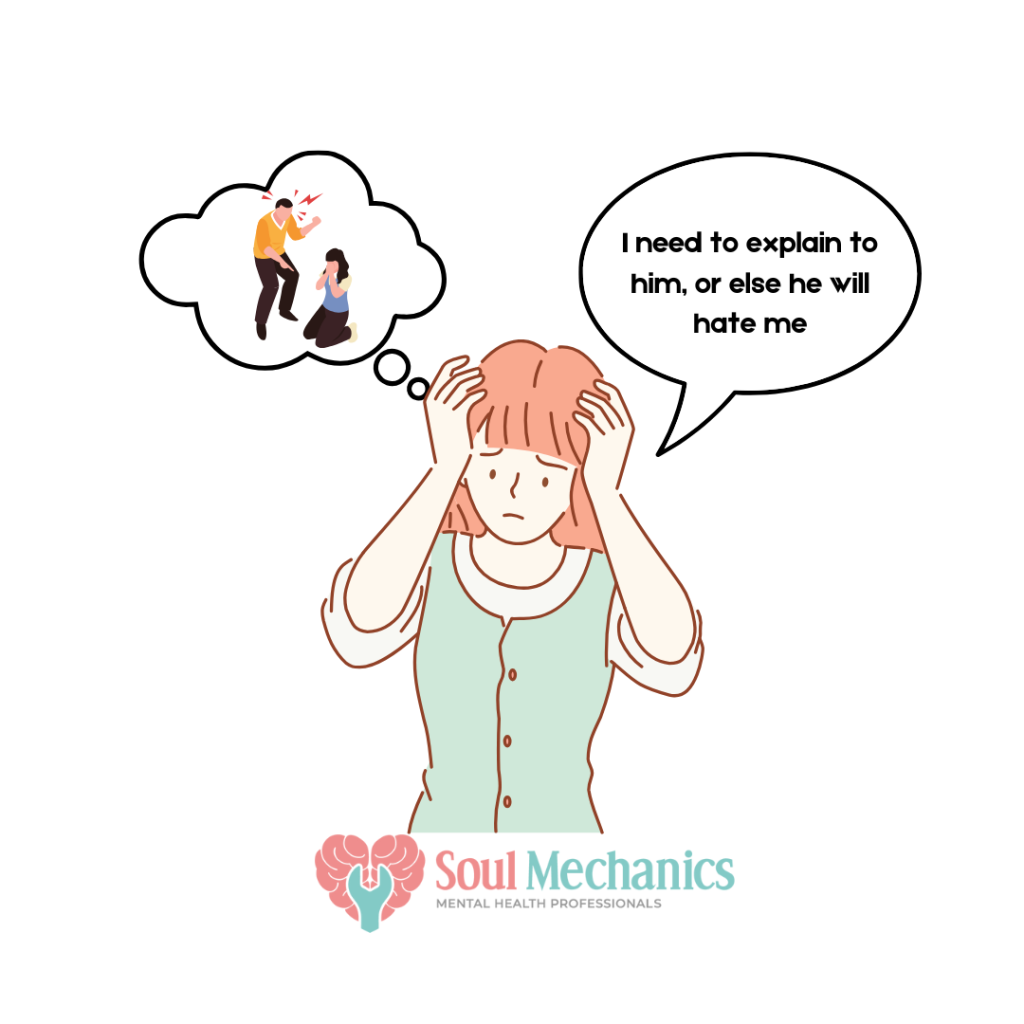
People who have gone through trauma, especially interpersonal trauma like emotional abuse, neglect, or abandonment, may become more sensitive to conflict and want to keep relationships safe. Overexplanation turns into a defence mechanism against imagined threats.
For instance, you may have learned to explain yourself in great detail in advance to avoid conflict if you were raised in a setting where voicing your emotions resulted in punishment or dismissal. You might have believed that you could protect yourself from criticism or increase your chances of acceptance by giving all the "right" explanations.
Overthinking and Hypervigilance
Traumatized individuals often live in a state of hypervigilance, constantly looking around them for signs of disapproval or possible threats. Overthinking can result from being overly aware of the potential negative reactions that one could elicit from your actions or words. An approach to try to manage those reactions and avoid any adverse consequences is to overexplain.
Fear of Abandonment or Rejection
Survivors of trauma frequently harbour a profound fear of rejection or abandonment. They may feel compelled to "prove" their value or defend their behaviour to others as a result of this fear. Since misunderstandings can make someone feel excluded or unloved, overexplaining becomes a tactic to avoid being misinterpreted.
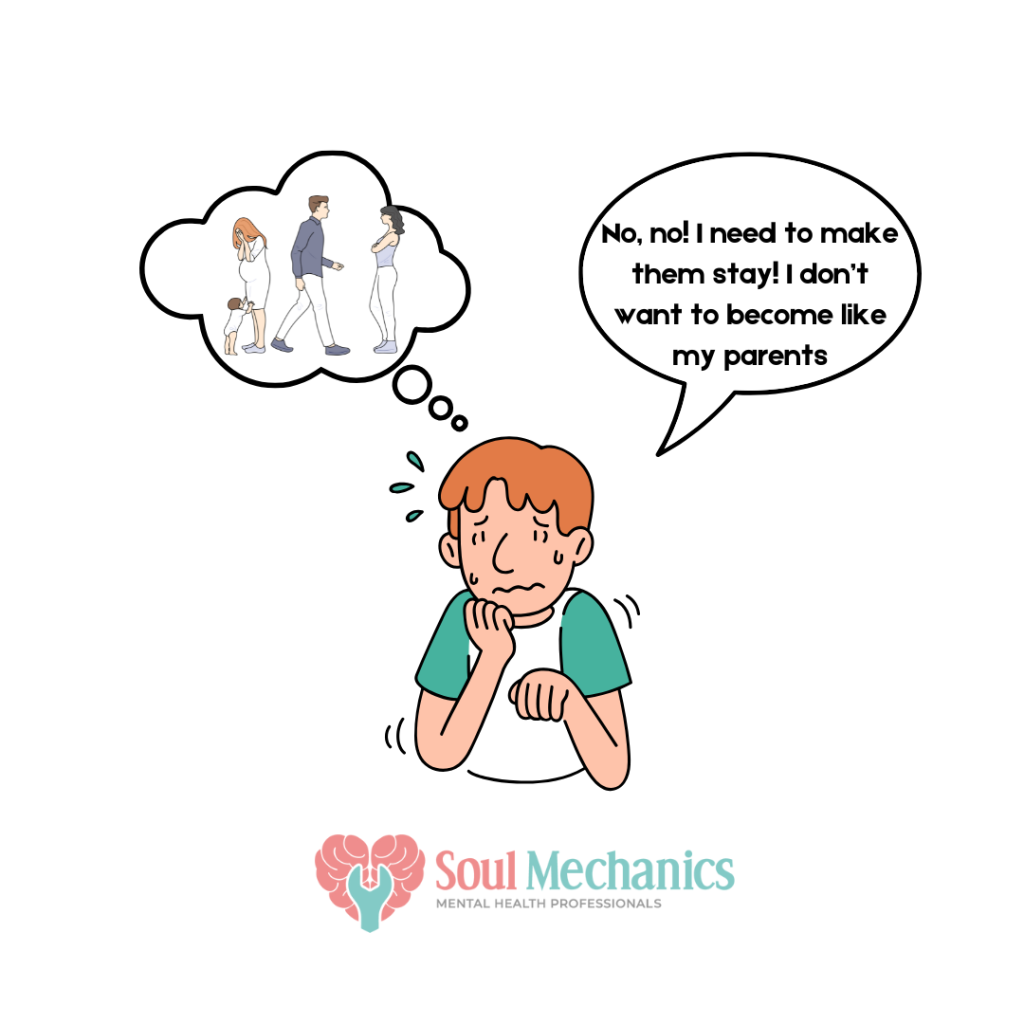
The Psychology Behind Over-explaining
Overexplanation is psychologically associated with an interplay of attachment styles, self-worth issues, and challenges with emotional regulation.
Attachment Styles
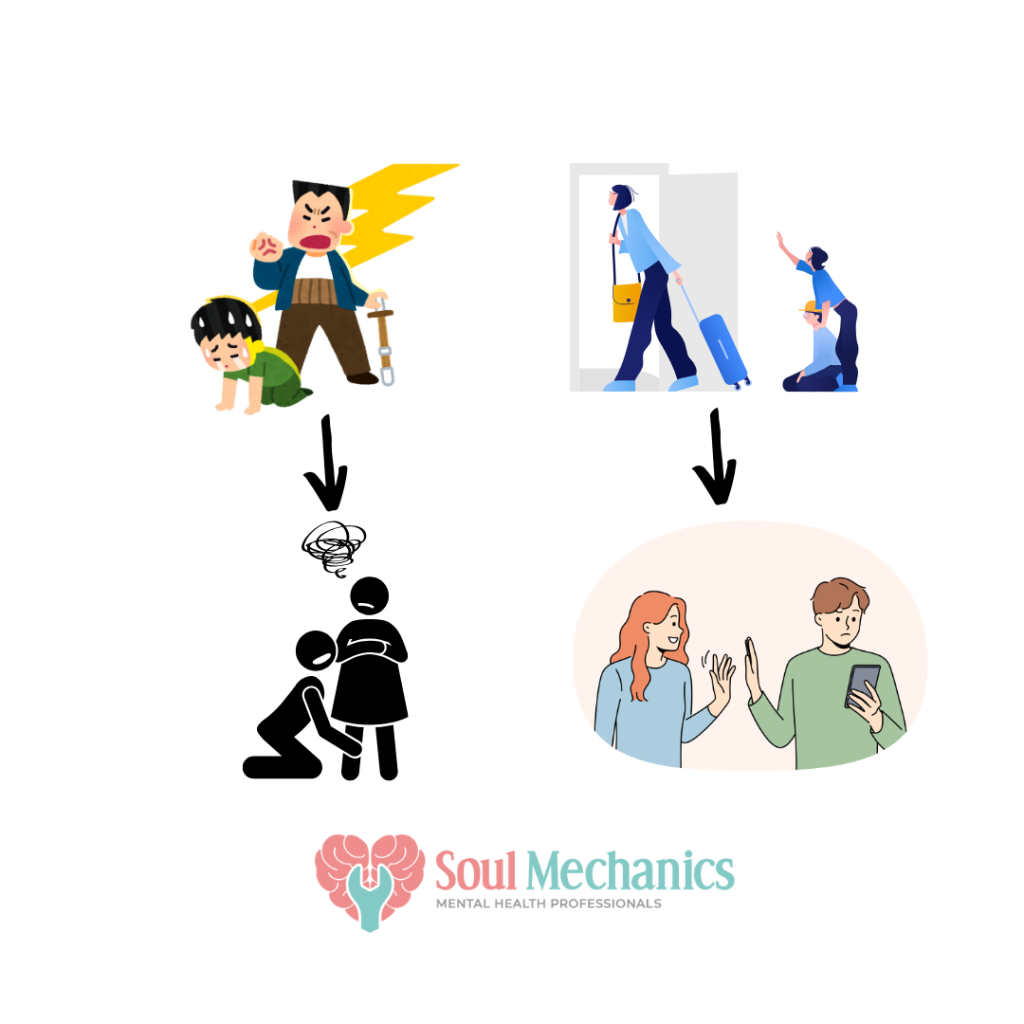
An explanation for why some people overexplain can be found in the theory of attachment. For example, people with an anxious attachment style might overexplain out of fear of losing approval or connection. In an attempt to reassure others and keep the relationship harmonious, they might feel pressured to give a detailed explanation of what they did. Conversely, people with an avoidant attachment style might overexplain to keep control over their appearance. They can maintain a safe emotional distance from others by anticipating and responding to possible criticism.
Low Self-Esteem
A person with low self-esteem may believe that their opinions, behaviour, or decisions aren't fundamentally sound. They may feel the need to clarify, "I'm saying no because of X, Y, and Z, and I hope that's okay," rather than thinking, "I'm allowed to say no." Because they lack confidence in their internal judgment, over-explanation turns into a means of obtaining approval or validation from others.
The Fight-or-Flight Response
Overexplaining is frequently a "fawn" response, a lesser-known survival strategy where a person tries to appease others to avoid harm. Trauma can trigger the fight-or-flight response. Those who have been abused or neglected frequently react in this way. They want to appear non-threatening and defuse a possible conflict by going into too much detail.
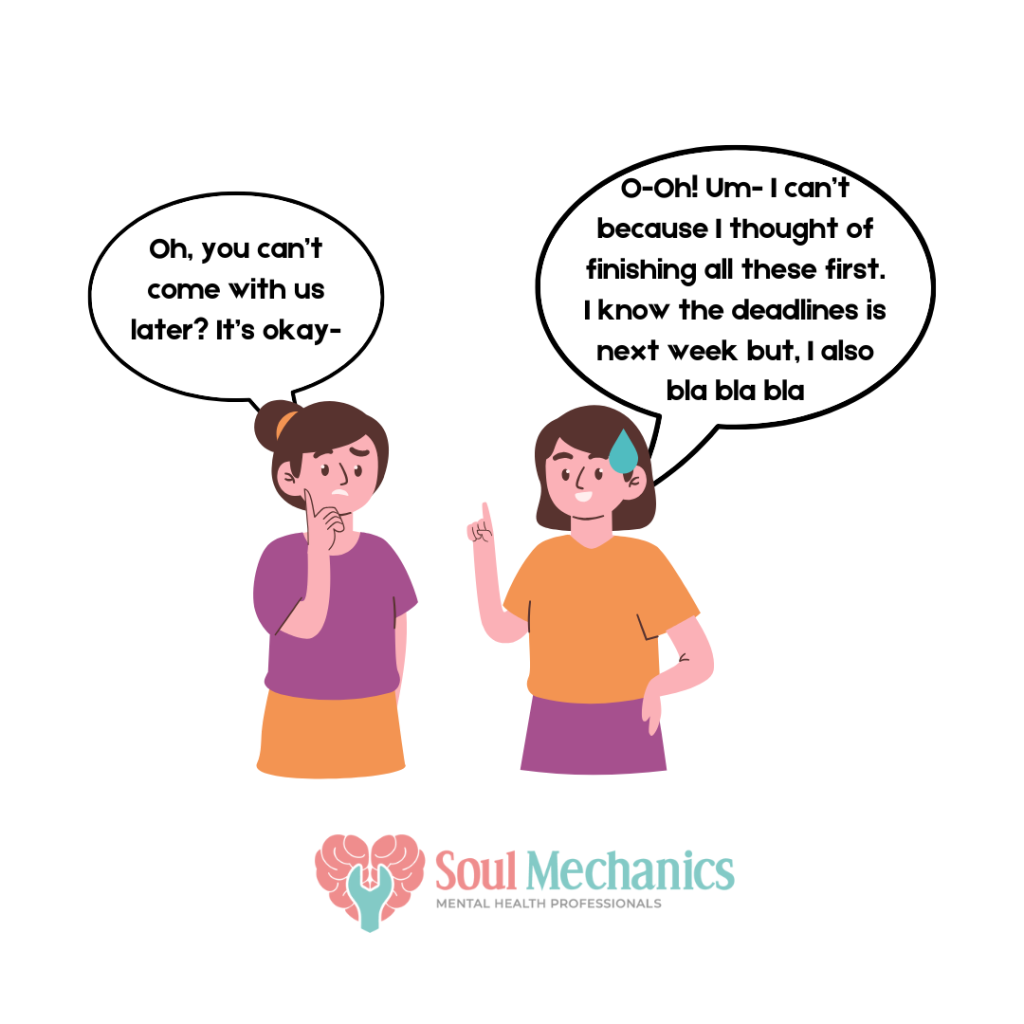
Over-explanation's Emotional Cost

Although it may seem like a protective strategy, over-explanation frequently has a price. It can be emotionally and physically taxing to constantly justify oneself. Relationships may suffer as a result of others feeling overloaded or perplexed by the abundance of information. Overexplanation can also serve to bolster low self-esteem. You're quietly telling yourself that your thoughts, emotions, or behaviours aren't valid and acceptable on their own every time you feel the need to justify yourself. Over time, this pattern can undermine your self-esteem, making it more difficult to kick the habit.
How to Break the Habit of Over-explaining
Silencing yourself or omitting crucial information is not the same as breaking the habit of overexplaining. It's about striking a balance so that you can express yourself clearly without feeling the need to justify every action you take. The following are some helpful strategies:
Practice Self-Awareness
The first step in overcoming overexplaining is becoming aware of when and why you do it. Pay attention to situations where you offer unnecessary details or try to justify yourself, and consider the emotions behind it—are you anxious, seeking approval, or avoiding conflict? Being mindful of these triggers allows you to pause and decide if more information is truly needed. Journaling can help you explore these patterns more deeply. With practice, you’ll gain greater control over your responses and communicate with more purpose and confidence.
Challenge Your Assumptions
To reduce overexplaining, challenge the assumptions that drive it. Reflect on why you feel the need to explain yourself—are you worried about judgment or misinterpretation? Often, overexplaining comes from a fear of rejection or a desire for approval. Remind yourself that your decisions and feelings are valid, no matter what others think. By questioning these assumptions, you can build confidence and reduce anxiety, allowing you to communicate more authentically.
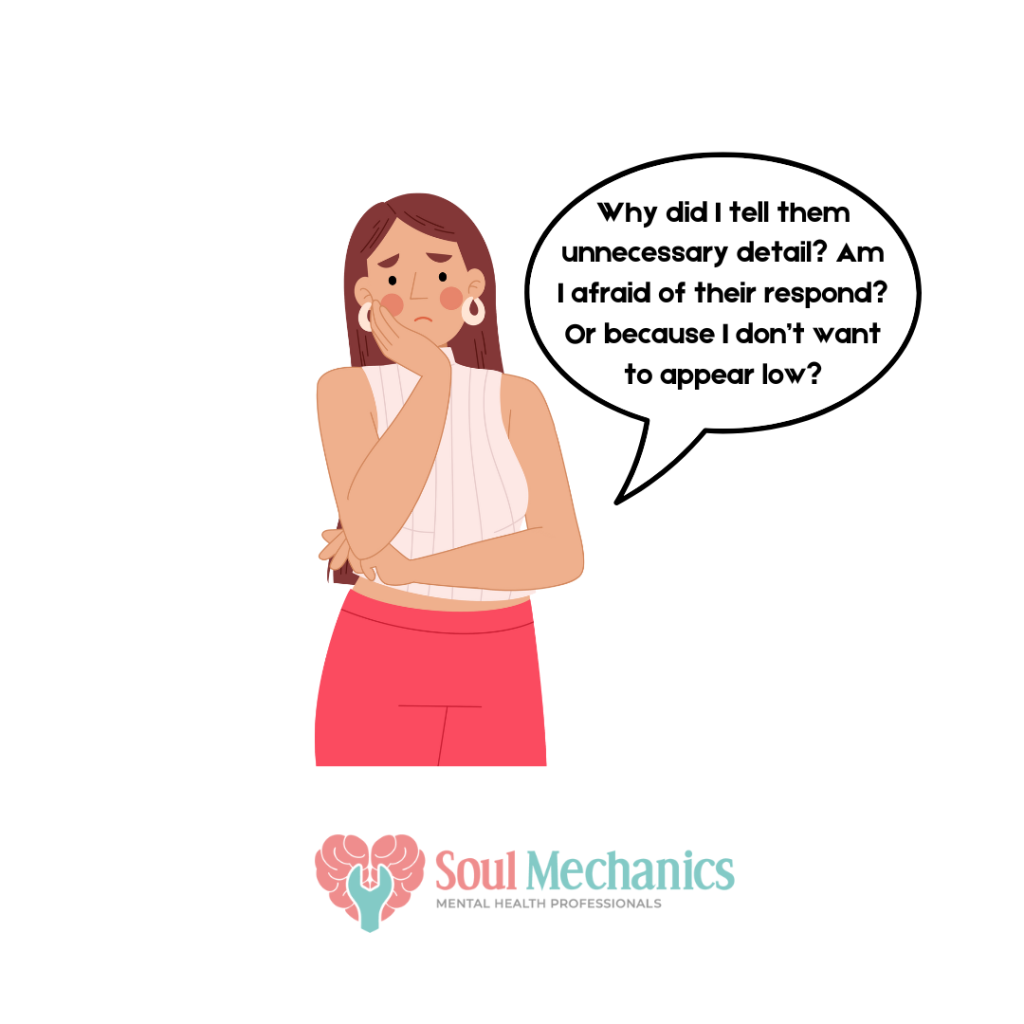
Set Boundaries
Setting clear boundaries is crucial to breaking the habit of overexplaining. Communicate your needs directly without feeling the need to justify your choices. Simple statements like “I can’t make it” or “That doesn’t work for me” are sufficient—no explanations are necessary. If someone questions your decision, politely reaffirm your boundary. Consistently practising this helps build confidence and ensures healthier, more respectful relationships while protecting your emotional well-being.
Build Self-Compassion
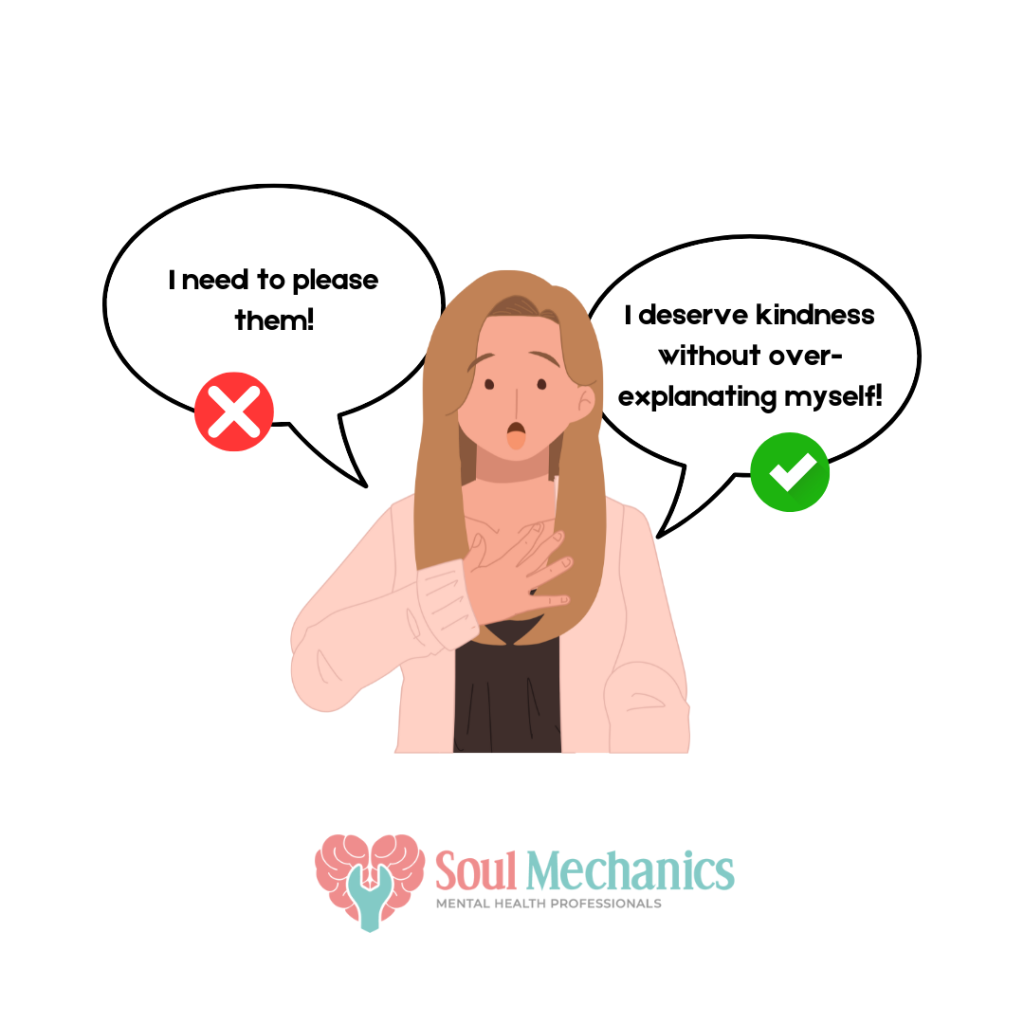
Self-compassion is key in overcoming overexplaining, as it often stems from self-doubt or fear of judgment. Remind yourself that your feelings, thoughts, and choices are valid, regardless of others’ opinions. Treat yourself with the same kindness you’d offer a friend, and recognize that prioritizing your needs is okay. Self-compassion quiets your inner critic and helps you accept your decisions without excessive justification, fostering confidence and inner peace over time.
Emotional Healing and Therapy
If overexplaining feels deeply ingrained, therapy can help uncover its root causes, often tied to past trauma or learned behaviours. A therapist can guide you in understanding why you feel the need to justify yourself or seek approval. Therapy also teaches healthier communication skills and helps build confidence and self-worth, enabling you to express yourself without guilt. As you heal emotionally, the need to overexplain will likely decrease, allowing you to communicate more clearly and authentically.
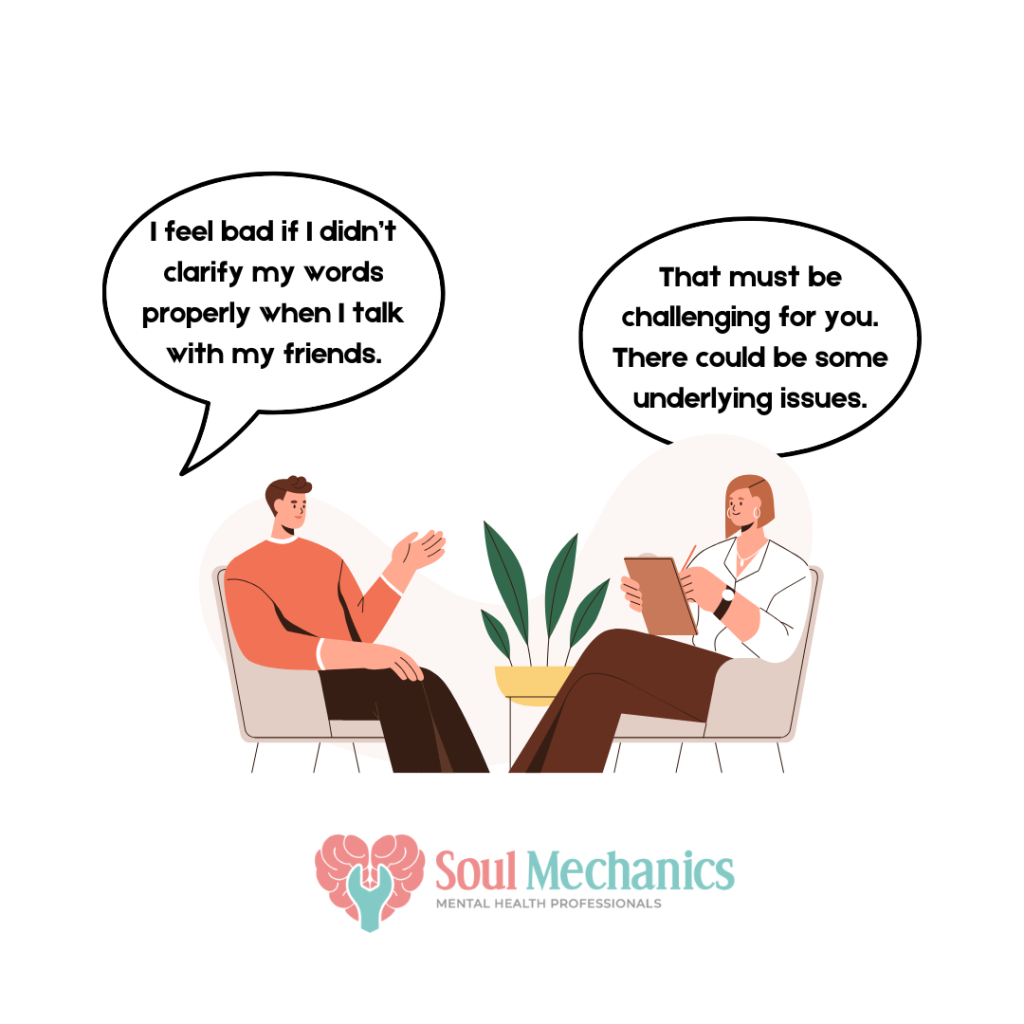
Taking the Next Step with Confidence

In the past, over-explanation might have been a survival strategy, but it doesn't have to determine your future. You can develop a sense of confidence and calm in your communication by comprehending the psychology underlying this behaviour and taking action to end the cycle. Keep in mind that you don't have to defend your existence to anybody.
Your decisions, feelings, and thoughts are all valid in their own right. And you'll feel less of a need to overexplain the more you think that. In the end, developing self-confidence is one of the best things you can do for yourself, and it's a worthwhile path.
If you’re looking for a therapist in Kota Damansara or Ipoh area, you can click here for more information.
If you enjoyed reading this, why not broaden the horizon of knowledge by learning about "Anxiety: Is It Me or the Anxiety Talking?"? You can read the blog here.
For more content related to mental health do follow us on our official Instagram.

